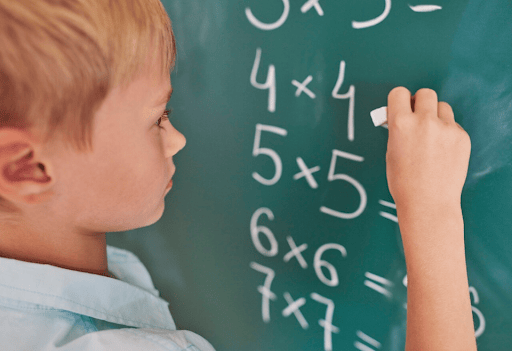One of the most important aspects of early education is helping young children become confident in maths. For first graders, math fluency means the ability to do simple calculations with accuracy and speed; it lays the foundation for all future maths learning. As children become fluent with numbers, they not only become faster, but they also enjoy maths more.
At this point, many parents seek support by looking into possibilities such as a tutor in math near me. However, it is not always a question of additional lessons; it is a matter of giving the right sort of practice and support both at home and through educational programmes for young children.
At First Class Learning, we understand the needs of first graders and help them develop strong number skills in a gradual, systematic, and successful way.
What is Maths Fluency?
Math fluency is being able to recall basic maths facts, like addition or subtraction, quickly and accurately. It does not mean rushing, but being quick and confident as the child understands well how numbers work.
For instance, a first grader who is fluent may be capable of saying that 6 + 4 = 10 without counting out loud or using their fingers. This type of number sense helps children in the future when maths becomes more complicated.
Why Is Speed and Accuracy Important?
When kids are fluent in fundamental number facts:
- They complete problems more quickly in tests and class
- They are more confident and less frustrated
- They can focus on harder things without being held back by the basics
- They learn to think and problem-solve more effectively
Some parents may even begin looking for help by typing things like best math tuition near me on the internet. While this shows that parents are keen to help their child, it is also a sign that what is really needed is a coherent, interesting way of developing fluency at the right pace.
Tips to Improve Maths Fluency at Home
Here are some simple ways:
- Regular Practice in Small Quantities
Daily practice of simple maths questions for 10 to 15 minutes. Keep it light and fun. Small games and rapid-fire questions can go a long way.
- Use Number Bonds
Number facts (e.g., knowing 7 + 3 = 10) are the building blocks of fluency. Do number pairs that total 10 or 20, either with flashcards or with objects around you.
- Maths Games
Maths can be fun with board games, dice, or online number games. Addition or subtraction games improve fluency without it feeling like hard work.
- Praise Progress, Not Perfection
Praise effort, not only the right answers. Confidence grows as children feel safe making mistakes and learning from them.
When to Seek Additional Help
If your child is having problems with maths, do not hesitate to look for extra help. Some parents will jump on the internet and type in something like tutor in math near me. This shows that they’re attempting to obtain help to assist their child’s early learning — but not every child needs a traditional tutor.
Even more important is obtaining a structured programme that enables fluency through step-by-step learning and daily practice. That’s where a learning support system like First Class Learning can be of excellent assistance.
Making Fluency Fun and Relevant
Maths doesn’t have to be boring. You can make it a part of your child’s everyday life:
- Make them assist you in counting things while shopping
- Let them handle coins and work out totals
- Experiment with cooking to explore measuring and dividing
Practical math makes learning more enjoyable and allows children to see the use of numbers within their environment.
Getting the Right Support
For the majority of families looking for extra learning support, the standard internet search term would likely be something like best maths tuition near me. Yet, all support does not have to be in the form of tutoring or tuition.
At First Class Learning, we offer rigorously designed maths programmes that guide your child through the national curriculum with a particular focus on confidence and fluency. Every child works at their own pace, with a system that builds up skills over time, not under stress.
Conclusion: Build Fluency the Right Way with First Class Learning
When it comes to math, speed and accuracy aren’t about rushing — they’re about understanding and practice. When first graders understand numbers, they learn to love maths and succeed with confidence.
If you’re looking for a structured, child-friendly method of supporting your child’s maths progress, First Class Learning is here to help. With individually tailored programmes and caring support, we provide your child with the ability to build maths fluency step by step — right from the start.
With First Class Learning, where each child learns at their own pace, with care and confidence, you can help your child develop confident number skills.









